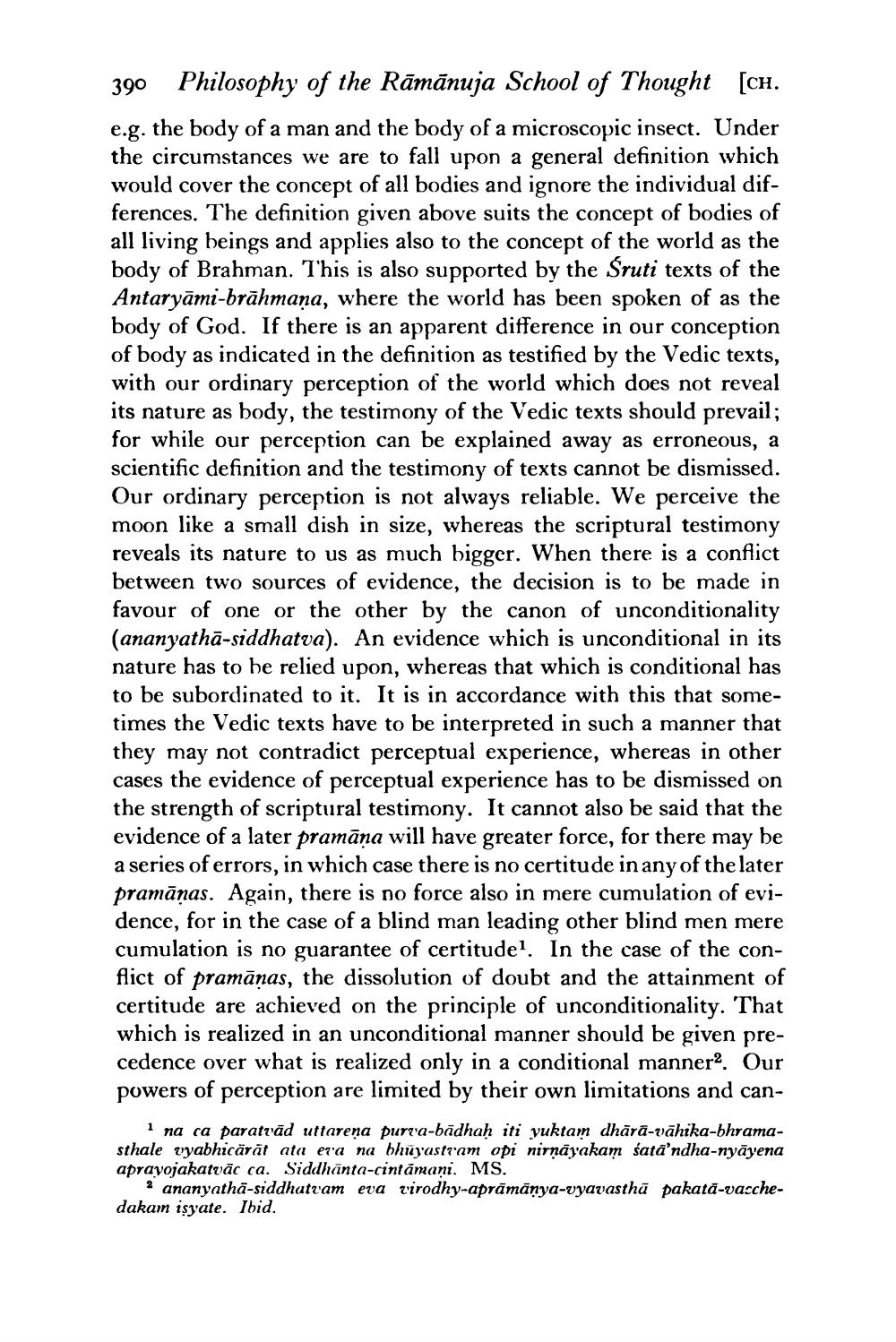________________
390 Philosophy of the Rāmānuja School of Thought [CH. e.g. the body of a man and the body of a microscopic insect. Under the circumstances we are to fall upon a general definition which would cover the concept of all bodies and ignore the individual differences. The definition given above suits the concept of bodies of all living beings and applies also to the concept of the world as the body of Brahman. This is also supported by the Sruti texts of the Antaryāmi-brāhmaṇa, where the world has been spoken of as the body of God. If there is an apparent difference in our conception of body as indicated in the definition as testified by the Vedic texts, with our ordinary perception of the world which does not reveal its nature as body, the testimony of the Vedic texts should prevail; for while our perception can be explained away as erroneous, a scientific definition and the testimony of texts cannot be dismissed. Our ordinary perception is not always reliable. We perceive the moon like a small dish in size, whereas the scriptural testimony reveals its nature to us as much bigger. When there is a conflict between two sources of evidence, the decision is to be made in favour of one or the other by the canon of unconditionality (ananyathā-siddhatva). An evidence which is unconditional in its nature has to be relied upon, whereas that which is conditional has to be subordinated to it. It is in accordance with this that sometimes the Vedic texts have to be interpreted in such a manner that they may not contradict perceptual experience, whereas in other cases the evidence of perceptual experience has to be dismissed on the strength of scriptural testimony. It cannot also be said that the evidence of a later pramāna will have greater force, for there may be a series of errors, in which case there is no certitude in any of the later pramānas. Again, there is no force also in mere cumulation of evidence, for in the case of a blind man leading other blind men mere cumulation is no guarantee of certitudel. In the case of the conflict of pramānas, the dissolution of doubt and the attainment of certitude are achieved on the principle of unconditionality. That which is realized in an unconditional manner should be given precedence over what is realized only in a conditional manner. Our powers of perception are limited by their own limitations and can
i na ca paratrād uttarena purva-bādhah iti yuktam dhārā-vāhika-bhramasthale vyabhicärāt ata era na bhūyastram opi nirnayakam sată'ndha-nyāyena aprayojakatvāc ca. Siddhanta-cintamani. MS.
2 ananyathā-siddhatram eva virodhy-aprāmānya-vyavasthū pakată-vacchedakam isyate. Ibid.




